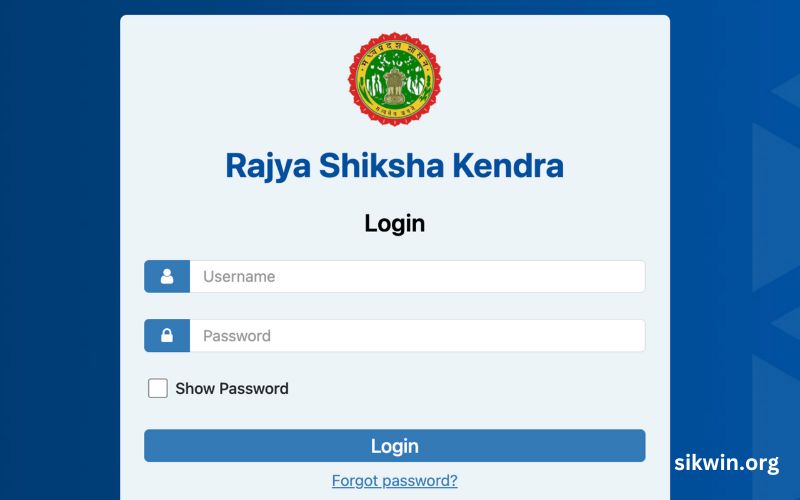The Rajya Shiksha Kendra (RSK) in Madhya Pradesh stands as a cornerstone in the state’s educational landscape, playing a pivotal role in the development and execution of educational policies and programs aimed at improving the quality and accessibility of education. Established with the vision of ensuring inclusive and equitable quality education, RSK has been instrumental in transforming the educational environment in Madhya Pradesh. This article delves into the structure, initiatives, challenges, and achievements of the Rajya Shiksha Kendra, illustrating its significant impact on the state’s education system.
Genesis and Structure of Rajya Shiksha Kendra
Rajya Shiksha Kendra was established as an autonomous institution under the Department of School Education, Government of Madhya Pradesh. The primary objective of RSK is to act as a nodal agency for implementing various educational programs and schemes, particularly those aimed at elementary education. The structure of RSK is designed to facilitate effective governance and execution of educational policies. It comprises various wings and departments, including curriculum development, teacher training, monitoring and evaluation, and ICT (Information and Communication Technology) in education.
Administrative Framework
RSK operates under the leadership of a Director, who is responsible for overseeing the implementation of educational programs. The Director is supported by a team of Joint Directors, Deputy Directors, and Assistant Directors, each managing specific domains such as academic development, administrative functions, and financial management. This hierarchical structure ensures a streamlined flow of information and effective coordination among different departments.
Key Initiatives and Programs
Sarva Shiksha Abhiyan (SSA)
One of the flagship programs managed by RSK is the Sarva Shiksha Abhiyan (SSA), a nationwide initiative aimed at universalizing elementary education. SSA focuses on bridging the gaps in access, equity, and quality of education. RSK has been instrumental in implementing SSA in Madhya Pradesh by constructing new schools, upgrading existing infrastructure, and ensuring the enrollment of out-of-school children. Special emphasis is placed on marginalized communities to ensure that every child has access to education.
Rashtriya Madhyamik Shiksha Abhiyan (RMSA)
The Rashtriya Madhyamik Shiksha Abhiyan (RMSA) aims at enhancing the quality of secondary education and increasing the enrollment rates in secondary schools. RSK’s role in RMSA involves the development of curricula that cater to contemporary educational needs, teacher training programs to improve pedagogical skills, and infrastructure development to provide a conducive learning environment.
Mid-Day Meal Scheme
The Mid-Day Meal Scheme, another significant initiative under RSK’s purview, aims to enhance the nutritional status of school-age children while simultaneously improving enrollment and attendance rates. By providing nutritious meals to students, the scheme addresses issues of malnutrition and encourages regular attendance, thereby promoting better learning outcomes.
Digital Education and E-Learning
In recent years, RSK has placed a strong emphasis on integrating technology into the education system. The implementation of digital classrooms, e-learning modules, and online teacher training programs has revolutionized the way education is delivered in Madhya Pradesh. The use of ICT in education not only enhances the learning experience but also ensures that students in remote areas have access to quality educational resources.
Teacher Training and Professional Development
Teachers are the backbone of any education system, and RSK recognizes the importance of continuous professional development. The Kendra conducts regular training sessions and workshops to equip teachers with modern pedagogical techniques and subject-specific knowledge. These training programs are designed to address the evolving educational needs and ensure that teachers are well-prepared to foster a conducive learning environment.
Inclusive Education
Inclusivity is a core principle of RSK’s educational philosophy. Special programs are designed to cater to the needs of children with disabilities, ensuring that they receive the necessary support and resources to thrive in the educational system. RSK collaborates with various NGOs and community organizations to implement inclusive education practices effectively.
Monitoring and Evaluation
Effective monitoring and evaluation (M&E) are crucial for the successful implementation of educational programs. RSK has established a robust M&E framework to assess the performance of various initiatives. This involves regular field visits, data collection, and analysis to identify areas of improvement and ensure that the objectives of educational programs are being met. Feedback mechanisms are also in place to incorporate inputs from teachers, students, and community members, thereby fostering a participatory approach to education management.
Challenges and Solutions
Despite its numerous achievements, RSK faces several challenges in its mission to enhance the educational landscape of Madhya Pradesh. These challenges include infrastructural deficits, especially in rural areas, the need for more trained teachers, and addressing the diverse linguistic and cultural backgrounds of students. However, RSK has been proactive in devising solutions to these challenges.
Infrastructure Development
To address infrastructural deficits, RSK has undertaken extensive school construction and renovation projects. Emphasis is placed on providing basic amenities such as clean drinking water, sanitation facilities, and safe classrooms. Innovative approaches, such as the use of modular classrooms and community involvement in school management, have also been employed to ensure sustainable infrastructure development.
Teacher Recruitment and Training
To mitigate the shortage of trained teachers, RSK has launched recruitment drives and collaborated with teacher training institutes to enhance the quality of teacher education. Distance learning programs and online training modules have been introduced to reach teachers in remote areas, ensuring that they have access to continuous professional development opportunities.
Multilingual Education
Recognizing the linguistic diversity of Madhya Pradesh, RSK has implemented multilingual education programs that respect and incorporate local languages into the curriculum. This approach not only helps in better comprehension among students but also preserves the cultural heritage of different communities. Language labs and resource centers have been established to support multilingual education and ensure that students receive education in their mother tongue while also becoming proficient in Hindi and English.
Achievements and Impact
The initiatives undertaken by Rajya Shiksha Kendra have yielded significant positive outcomes. Enrollment rates in elementary and secondary schools have seen a substantial increase, and dropout rates have declined. The quality of education has improved, as evidenced by better student performance in state and national level examinations. The Mid-Day Meal Scheme has successfully addressed issues of malnutrition, contributing to improved health and academic performance among students.
Community Involvement
One of the notable achievements of RSK is the successful engagement of communities in the education process. Through School Management Committees (SMCs) and Parent-Teacher Associations (PTAs), RSK has fostered a sense of ownership and responsibility among community members. This participatory approach has led to improved accountability and better management of schools.
Innovative Practices
RSK’s commitment to innovation in education is evident through various pilot projects and experimental programs. For instance, the introduction of smart classrooms and digital learning platforms has not only made learning more interactive but also bridged the digital divide. These innovative practices have been scaled up based on their success, benefiting a larger number of students.
Awards and Recognition
The efforts of Rajya Shiksha Kendra have been recognized at both national and international levels. The institution has received several awards for its exemplary work in the field of education, including accolades for effective implementation of SSA and RMSA, innovative use of technology in education, and achievements in inclusive education.
Future Directions
Looking ahead, Rajya Shiksha Kendra aims to build on its successes and address the remaining challenges. Future plans include the expansion of digital education initiatives, further strengthening of teacher training programs, and continued focus on inclusive education. Additionally, RSK is exploring partnerships with private sector organizations and international bodies to bring in fresh perspectives and resources to the educational ecosystem of Madhya Pradesh.
Sustainability and Scalability
Ensuring the sustainability and scalability of educational programs is a key focus area for RSK. By adopting a holistic approach that integrates community involvement, innovative practices, and robust monitoring mechanisms, RSK aims to create a sustainable model of education that can be replicated in other states and regions.
Research and Development
RSK is also investing in research and development to explore new methodologies and practices in education. Collaboration with academic institutions and research organizations will be enhanced to keep abreast of global trends and innovations in education.
Conclusion
Rajya Shiksha Kendra, Madhya Pradesh, exemplifies a dynamic and progressive approach to educational administration and development. Through its comprehensive programs and initiatives, RSK has made significant strides in improving the quality and accessibility of education in the state. While challenges remain, the institution’s commitment to innovation, inclusivity, and community involvement provides a robust foundation for continued progress. As RSK continues to evolve, it promises to further transform the educational landscape of Madhya Pradesh, ensuring that every child has the opportunity to receive a quality education and realize their full potential.




